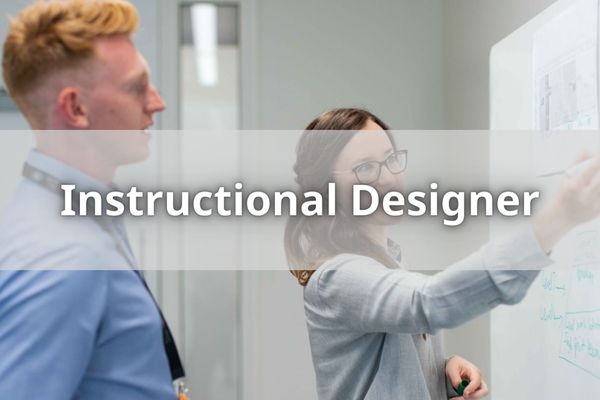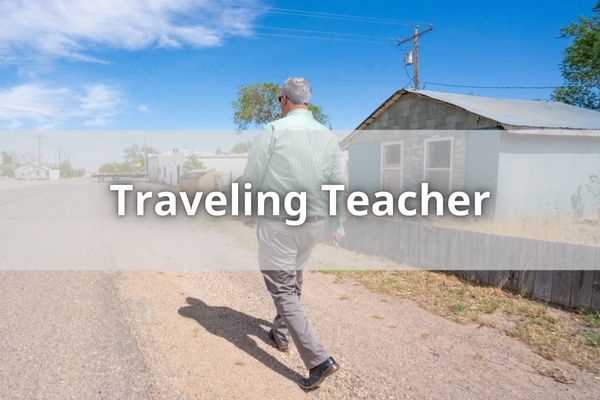Creative Teaching Careers: Paths For Passionate Educators
Teaching is a rewarding and fulfilling career for many people. It offers the chance to help shape young minds and inspire students to reach their potential. Creative teaching careers offer these same benefits, plus an opportunity for teachers to apply their own unique skill set to create exciting learning experiences for their students. From theatre arts to culinary instruction, there are countless ways that teachers can use their creativity in the classroom.
In this article, we’ll explore some of the most engaging creative teaching careers out there today.
Introduction
Teaching is an ever-evolving profession that requires educators to think beyond the traditional classroom setting. As technology advances and students become more connected, teachers need to be creative in order to reach their pupils. Unconventional teaching career paths provide unique opportunities for inspiring students and helping them reach their full potential.
From coding classes to virtual learning programs, there are many ways to get involved with alternative education options. These innovative approaches can help bridge the gap between student needs and teacher resources while also providing new avenues of professional development.
By exploring different teaching roles outside of the traditional structure, educators can create a stimulating environment where creativity and collaboration thrive.
Teaching Artist
From providing a platform for creativity to facilitating learning, teaching artists have an incredibly important role in education. As professional educators who specialize in the arts, they use their expertise and knowledge to create engaging lessons that often involve interdisciplinary approaches. Teaching artists work with different organizations such as schools, community centers, or even arts organizations.
To become a successful teaching artist one needs certain qualifications which include having excellent communication skills, being knowledgeable of various art forms, having experience working in classrooms around children and youth, and holding valid certifications related to the field.
The earning potential of teaching artists varies depending on location and job type but generally ranges from $20 – $50 per hour. There are many success stories out there attesting to the impactful results that can be achieved when teachers take creative risks within their classroom environments.
Educational Consultant

Educational consultants provide invaluable support and guidance to schools and organizations. They specialize in a variety of areas, including curriculum development, technology integration, assessment strategies, instructional coaching, and more.
Becoming an educational consultant involves taking certain steps:
- Establishing experience and credentials through teaching or related roles
- Developing specialized knowledge within an area of expertise
- Building relationships with relevant associations and networks
- Understanding the legal requirements for becoming certified as a consultant.
Work-life balance and income are important considerations for those interested in pursuing a career path as an educational consultant. Consulting offers flexibility and control over working hours, enabling you to manage your professional life around other obligations if needed.
Financial rewards will depend on the type of role you take on – some may be offered full-time positions while others prefer freelance work where they can set their own rates depending on the project scope. Job prospects are good given that many schools rely heavily on external support from educational professionals like consultants to help them meet their goals.
Outdoor Educator

After discussing the role of educational consultants, it is now time to look at another creative teaching career: outdoor education.
Outdoor education utilizes nature as a tool for teaching and learning. It involves activities such as camping, hiking, canoeing, and other hands-on experiences in natural settings. This type of environment helps students to get out of their comfort zone while also fostering creativity and problem solving skills.
Outdoor educators have many roles and responsibilities including planning safe and engaging lessons that incorporate environmental sustainability, conservation, and experiential learning. They must stay up-to-date on certification requirements for professional development and create meaningful relationships with potential employers or organizations within the field of outdoor education.
Being an outdoor educator can be both challenging and rewarding; however, those who are passionate about making a difference will find great satisfaction in this unique profession.
Museum Educator
Museum educators have the unique and rewarding opportunity to combine art, history, science, and education into one career.
With a variety of educational programs available for diverse age groups and audiences, museum educators can explore their creativity while creating meaningful learning experiences in an engaging environment. From designing interactive exhibits to working with schools and other institutions on outreach initiatives, there are many opportunities to make a lasting impact in the world of education.
To get started in this field, it is important to build up relevant skills such as communication and problem-solving. Qualifications vary depending on the institution but usually consist of some combination of teaching experience and knowledge related to the subject matter being taught. Income potential also varies according to job type and location but professionals in this field typically earn competitive salaries that reflect their expertise.
Networking with organizations like the American Association of Museums or attending conferences are great ways to stay informed about industry trends and connect with others who share your passion for museum education.
Instructional Designer

Becoming an instructional designer is a rewarding and creative career opportunity for those interested in developing learning experiences. Instructional designers are responsible for designing engaging and effective curricula, drawing from educational theories and models to create well-rounded lessons that meet the objectives of their employers or clients.
Working as an instructional designer involves working with different stakeholders such as educators, subject matter experts, multimedia specialists, etc., to produce content that meets both academic standards and audience needs. It also involves staying up-to-date on current trends to ensure maximum engagement.
Here are some important things to consider when pursuing this profession:
- Skills & Qualifications:
- Technical skills (programming knowledge)
- Knowledge of instructional design theory/models
- Experience using authoring tools like Adobe Captivate or Articulate Storyline
- Job Prospects & Income:
- Strong job prospects in corporate training and higher education sectors
- Average salary range varies depending on experience level, location, industry sector, etc.
- Work-Life Balance:
- Flexible hours for remote work opportunities
- Ability to structure own schedule when working independently.
The field of instructional design offers a diverse range of professional opportunities regardless of specialized interest area; it requires technical aptitude coupled with creativity that can be applied across many industries. With the right qualifications and dedication, becoming an instructional designer can provide fulfilling rewards beyond just financial compensation.
Traveling Teacher

Teaching is an incredibly rewarding profession, but some teachers are looking for more than just a regular classroom experience. For those adventurous souls out there, traveling teaching careers provide the perfect opportunity to combine their love of education with exploring new places and cultures around the world.
With study abroad programs and international schools offering exciting opportunities, these types of jobs can be immensely fulfilling personally as well as professionally. Traveling teacher positions offer incredible benefits such as cultural exchange, global citizenship activities, and financial rewards that make it a highly desirable career path.
There are certain qualifications needed in order to qualify for this type of job, including language proficiency and prior teaching experience; however, with proper research and preparation anyone interested in becoming a traveling teacher can find success in this field.
The income potentials vary depending on location, however many times teachers end up making far more money than they would have if they stayed at home or worked for a local school district. In addition to earning potentials, travelers also get to explore different parts of the world while doing what they love – educating others!
Edtech Innovator

Transitioning from the previous section, EdTech innovators take teaching to a whole new level. They are responsible for bridging technology and education in order to enhance learning experiences. From developing educational software to creating e-learning platforms, they use creative methods to help students learn more effectively.
EdTech innovators evaluate the effectiveness of their tools, collaborating with educators to ensure practicality and usability while striving to create innovative solutions that can improve student outcomes. Those interested in breaking into this industry should consider opportunities such as internships or apprenticeships, earning potential, job prospects and professional associations related to EdTech.
With hard work and dedication, those who become involved in this field have the opportunity to make a real impact on how we approach educational technology today.
Conclusion
The potential for creative teaching careers to have a lasting and meaningful impact on the future of education is undeniable. As educators, we must recognize and embrace these opportunities as they arise in order to create more inclusive educational experiences that foster growth and development among our students. By exploring these unconventional paths, teachers can engage their students in an exciting new way while developing professionally themselves.
Through continued professional development, teachers will be able to provide their students with the best possible experience by staying current on trends, technology, and techniques within their field. Although there are certainly challenges associated with pursuing such career paths, the rewards far outweigh any obstacles encountered along the way. With dedication and hard work, creative teaching careers offer an opportunity to make a real difference in how children learn today and tomorrow.






